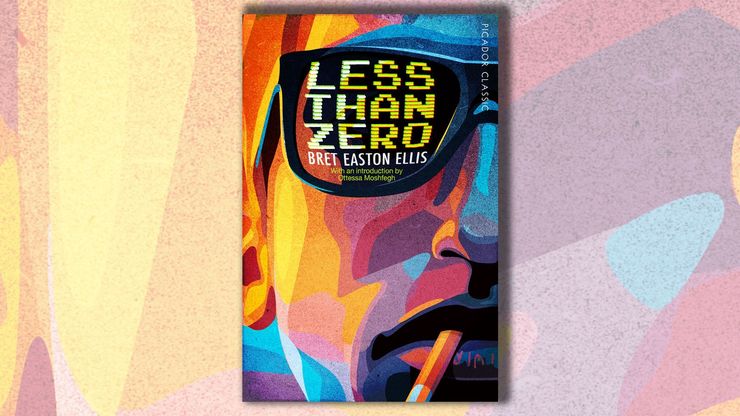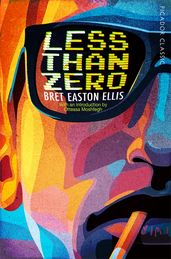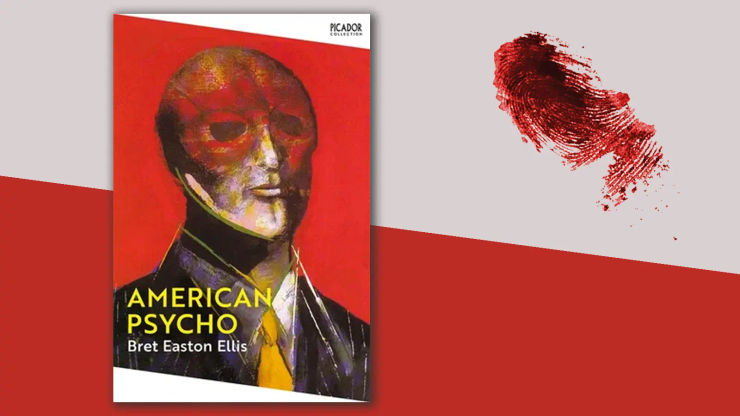Bret Easton Ellis on writing controversial books since 1985
To publish or not to publish, that is the question. In the case of Bret Easton Ellis's cult debut novel, this reader was certain: ‘I'd pass'.

Bret Easton Ellis has always been one of literature's most controversial authors, and with his first non-fiction book White making headlines, he shows no signs of stopping. A polarizing figure from the beginning of his career, this reader's report from 1985 advises Bret's publisher to ‘pass' on publishing his now much-loved cult debut novel Less Than Zero. Reader's reports are written for the benefit of editors and publishers who need to make a decision on whether or not to publish the book in question, and are rarely, if ever, seen by the general public. Read the full report, below.
Famous all over Town took the dispossessed of LA as its cast. Here we have the very opposite, the children of the very rich (TV/film) and the very busy, children whose parents buy them Mercedes for their birthdays, who give them charge accounts at the better stores. These are the kids with the right scarfs around their necks and the right sort of T-shirt, who run around with each other in a bored and removed manner – unwilling and unable to show anything but the most transitory of emotion or feeling.
The central character here is Clay. We don't know his exact age (everyone is so old here ) but guess it's around 16-17. Clay has just returned for the Christmas holiday from his new school in New Hampshire - a place where one supposes his parents sent him in order to break his pattern of shiftless existence here. Clay is not met at the airport by his mother or father, but by his old girlfriend (if that's what she really was the term implies too much passion to be quite accurate) Blair. She's not exactly pleased to see him but then it's hard to know what anyone feels. It's OK. She leaves him at his parent's house and barrels off. They'll catch each other later, perhaps at Kim's or . . . or maybe down at The Garbage or The Edge. They're new clubs opening every day.
And so it goes. Clay's world is one where his mother shops and get her hair fixed (and mostly has affairs with tennis coaches and the like) and his father sits high up in his swivel chair making deals, where he and his friends do drugs (if anyone turns up on time) check out the clubs, hang around, stay up late, drink champagne, fuck each other occasionally and traipse along to the next, and probably very boring party. They're smart, catty and most of the time quite out of it. They're chilled to the bone. Very little can excite them. It's going to have to be bizarre, right? Like they find a corpse in an alley and stick lighted cigarettes in its mouth. Watch their parents' ( someone's anyway) snuff movie. And finally, at the end of the book, Clay and his friend Brent are taken to Rip's apartment, where, tied to the bed is a twelve-year-old girl, raped and shot up with dope. She's been there for a couple of days now. Rip takes down his trousers and invites his two friends to join in. Trent wants to stay. Clay walks away. ‘Don't look at me as if I'm some sort of scumbag' says Trent. ‘If you want something you have a right to it.'
So Clay walks away and away from that life too maybe. It would be too much to expect that he do something about the twelve-year-old, but he decides that he should go back to New Hamshire. He'd been home too long.
There's a certain magnetic attraction here . . . there is an underlying, unsaid need that you know would like to surface. But the trouble is there's no real need to know here. Ok so Clay is a fucked up rich kid. He's not exactly a real figure, rather a shadow of what a real figure could be if he could wipe all this shit off. He and his wired, tanned friends have barely a personality between them, less than zero indeed. Had Clay a tougher fight on his hands (who's to know what happens in New Hampshire?) had he given himself more choices, then maybe we would care about his fate a little bit more, but he doesn't and we don't. This may be an accurate portrait of a place and age . . . But I'm afraid for the reader Clay's fate is as important to them as it probably is to his friends.
I'd pass.
Less Than Zero

Eighteen-year-old Clay returns home to LA for the Christmas holidays, rich, bored and looking to get high. Reacquainting himself with the world of privilege and wealth in which he was raised, an increasingly jaded Clay moves from the hottest nightclubs to the wildest drug-fuelled parties in this cult classic coming of age story.
White

In his first work of non-fiction, Bret Easton Ellis tackles politics, relationships and social media as well as the films, music and TV that he loves and hates. Funny, entertaining and searingly honest, this book is sure to provoke debate and is impossible to ignore.


